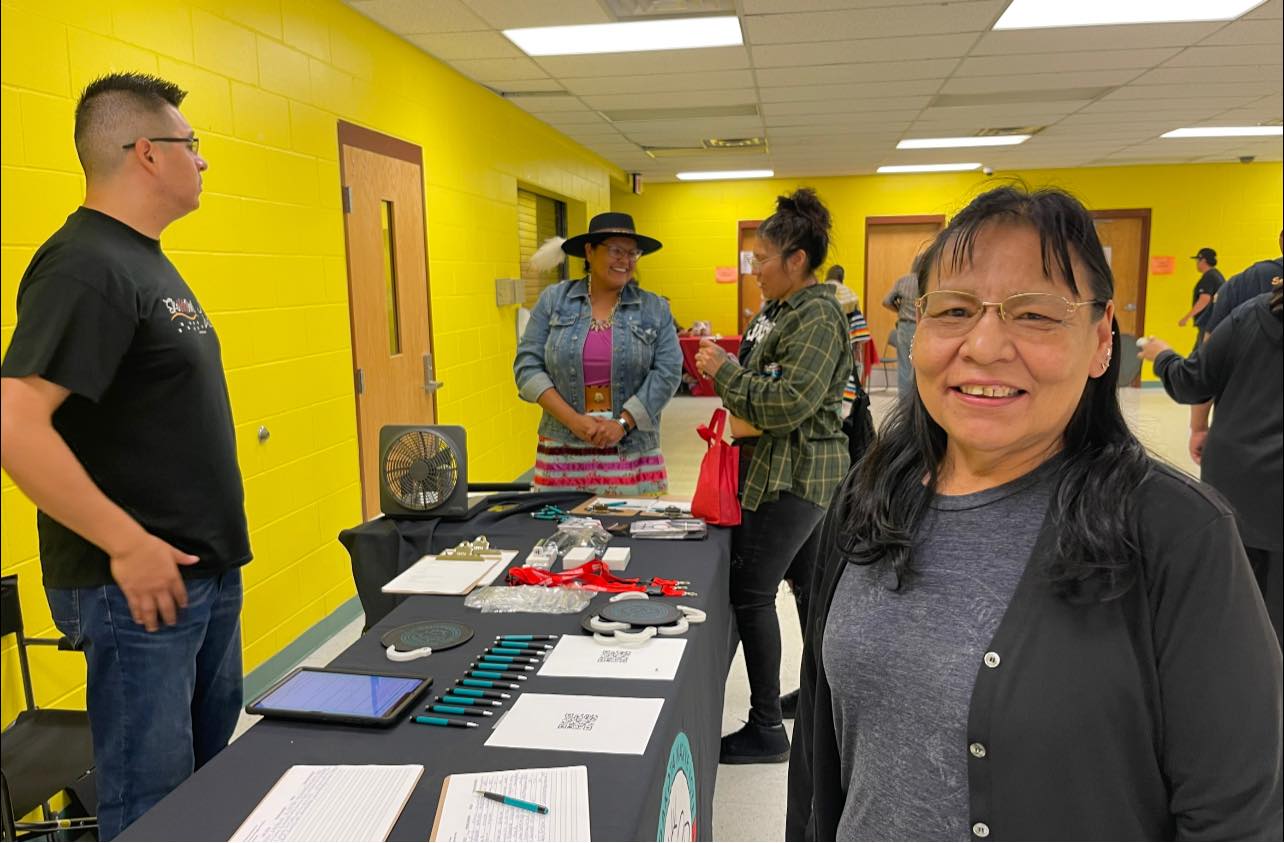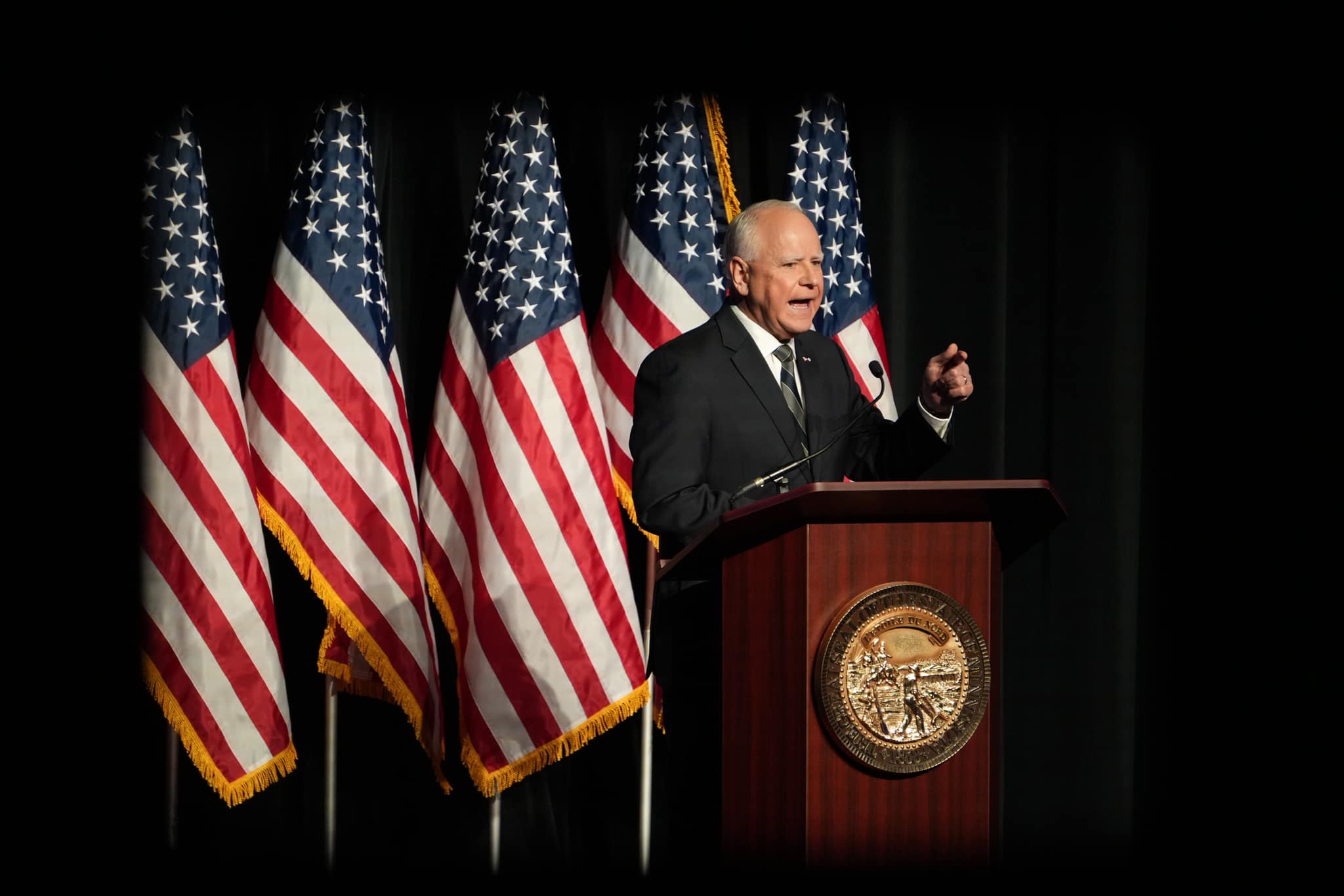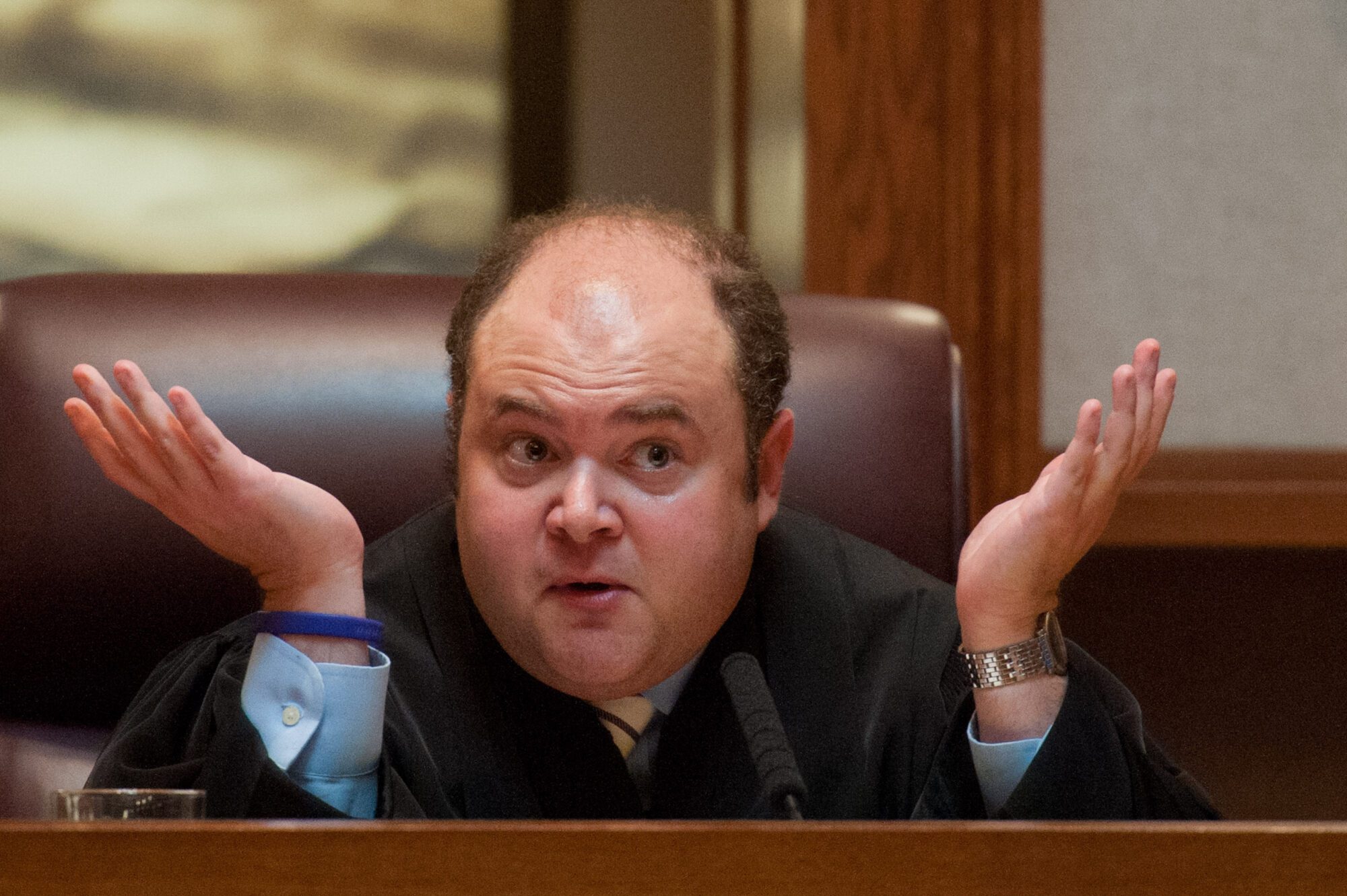Black Residents in West Tennessee Just Won Fairer Districts. Now Comes SCOTUS.
The Supreme Court may further erode the Voting Rights Act in an upcoming decision. Beyond affecting Congress, that would reverberate across local governments nationwide.
| November 21, 2025

This article is part of Bolts’ ongoing coverage of the threats faced by the Voting Rights Act. It is published in partnership with MLK50: Justice Through Journalism, a nonprofit newsroom that covers civil rights in the Memphis region.
It has been nearly two years since Fayette County officials shuttered the Bernard Community Center, in rural West Tennessee. The closure has devastated the mostly Black residents who frequented the space to host after-school tutoring sessions for students, breakfasts for senior citizens, movie nights, knitting classes, and private events like birthdays and memorial services. “People used it for 20 years to help each other, to help themselves, and now that is just gone. It has had an emotional toll on people,” says Christine Woods, who served on the community center’s board and fought its closure.
Since the center was shut down, Woods and other advocates have organized protests and pled at public meetings for Fayette County’s board of commissioners to reopen it. But Woods says nobody seems to be listening on the board, whose 19 members are all white despite the county’s large Black population.
“If we had different representation on the county commission board, we would have had someone to stand up and fight for us,” Woods told Bolts and MLK50. “They don’t have to be someone Black, just someone who cares about our community. Someone who can see things from our eyes and feel our pain. Someone who knows what this center means to us, who thinks we deserve to have it. Right now, I think no commissioner feels that way.”
The make-up of the Fayette County board is by design. The county in 2021 drew a map with no majority-Black district, even after the board’s own counsel advised that the plan illegally diluted the power of Black voters, who make up roughly a quarter of the population.
Black residents won a reprieve this year, after Woods and other residents joined with the local NAACP to sue Fayette County, claiming the map violated the 1965 Voting Rights Act. Under the threat of their lawsuit, which followed another complaint filed by the Department of Justice under President Joe Biden, county officials relented in July and adopted a revised map for the 2026 elections that includes three majority Black districts.
The new map could significantly boost Black representation in Fayette County next year, but those gains already feel fragile. The U.S. Supreme Court is poised to deliver a ruling in the coming months that could gut the VRA, threatening this county’s new districts and undermining similar challenges elsewhere.
In a case known as Callais, the court’s ultra-conservative majority seems likely to weaken, if not strike down, Section 2 of the VRA, which has provided the key legal framework for challenging discriminatory maps and establishing seats where candidates of color have a shot at winning. That prospect has drawn most attention for how it’d transform Congress, but it would also upend local governments, from county councils to school boards.
“Section 2 most of the time has been used at the local level,” says Kevin Morris, a voting policy scholar with the Brennan Center for Democracy. “That is where both the earthquake of Callais might be felt the most strongly, and also where we might be least prepared to identify these changes because of the demise of local media.”
“It could be like a one-two punch to racial representation at the local level,” Morris added.

Woods views the VRA as a vital tool to fight discrimination in Tennessee and she is watching the Supreme Court nervously. “If there were not those legal consequences to make the county do right, we wouldn’t stand a chance,” she said. “If we didn’t have a legal way of solving the problem, we would still be sitting with that 2021 map. I would vote regardless, but in my heart of hearts, I would know that there is a certain degree to which my vote wouldn’t matter.”
Currently, Section 2 of the VRA protects voters from redistricting schemes that dilute the power of voters of color. Courts have used Section 2 to require that states and counties draw majority-minority districts where Black, Latino, or Indigenous residents have the ability to elect a candidate of their choosing, subject to conditions known as the Gingles test.
But the case currently before the Supreme Court, Louisiana v. Callais, claims that the state engaged in race-based discrimination against White voters by establishing two majority-Black congressional districts in 2024; the plaintiffs want to bar the use of racial factors in redistricting, which would prevent courts from demanding majority-minority districts.
At the oral arguments in October, the conservative justices signaled they would likely undermine Section 2. It is unclear how sweeping their decision might ultimately be, but experts warn the ruling could upend voting rights and lead to a domino effect of protected districts being eliminated.
Sign up to our newsletter
For more stories on voting rights
“If it is a far reaching decision, then it’s not just about Louisiana, it’s about the future of Black representation across the country and representation for all voters,” said John Cusick, an attorney for the NAACP Legal Defense Fund who represented Fayette County residents in their gerrymandering lawsuit and is also working on the Callais case.
Tennessee Republicans could try to erase the majority-Black congressional district centered on Memphis, which is the state’s sole Democratic-held district. GOP leaders in Louisiana are already preparing to redraw their congressional map if the Supreme Court greenlights it.
Just a short drive from Memphis, though, Fayette County stands as a reminder of how the case looms large over the future of local and county governments.
Local elections are especially vulnerable to discriminatory tactics because local offices are under much less scrutiny, and communities have fewer resources to put into a legal battle, according to Morris. He has found that past rulings that weakened VRA protections, such as a 2013 Supreme Court ruling that struck down the use of federal preclearance in areas with a demonstrated history of racist voter discrimination, have already sparked waves of suppressive policies. He said, “It can be easier to hide from national attention these actions at the local level.”
Civil rights advocates in Fayette County are now concerned that, if the Supreme Court weakens or invalidates Section 2, local officials could quickly backtrack on the majority-Black districts they redrew this year.
“If Section 2 of the Voting Rights Act is taken out, there is no doubt in my mind that those maps will come back,” said Elton Holmes, the president of the NAACP’s Fayette-Somerville branch.

Even if county officials keep the new districts ahead of the 2026 midterms, Holmes expects them to return to a map that diminishes Black voting power after the 2030 census. He says they only relented this year because “they didn’t want to spend the resources going to court knowing they would probably lose.”
“They’re not going to be worried about a lawsuit next time because we might not have Section 2 to keep them from doing what they did,” he added.
Asked by Bolts and MLK50 whether the county may redraw its districts ahead of the 2026 midterms, Fayette County Mayor Rhea “Skip” Taylor said of the new map, “It was adopted unanimously. The community feels like it is a fair plan and I have seen no effort to make or consider a change.”
Looking ahead to the redistricting that will follow the 2030 census, he added, “I expect the plan adopted for the elections following the 2030 census to be fair.”
Black membership on the county commission had already declined for years before the latest map debacle, which the DOJ suit attributes to persistent efforts to fracture Black communities into large rural districts where they had “no hope of representation.” There were four Black commissioners on the board in 2010, but the number shrunk after the map was redrawn the next year following the decennial census, and was down to one by 2021.
During the 2021 redistricting process, the county evaluated several map configurations that provided two to three majority Black districts, and an outside legal advisor hired by the county insisted the maps must ensure that Black voters are fairly represented. But Commissioner Claude Oglesby introduced a new map that had no majority-Black district during the board’s final session on the issue. Even though a fellow commissioner objected that the map appeared discriminatory, it passed by a vote of 10-8.
For Woods, these events are indicative of how county leaders would behave if they no longer have to worry about Section 2 of the VRA. “I have no doubt that the mayor and the county commissioners in office now would put the map back the way they wanted it,” she said. “When they did it, their attorney told them it was illegal discrimination against Black voters. And they did it anyway. So if the opportunity presents itself again—why wouldn’t they go back to it?”
In fact, according to the DOJ’s lawsuit filed in January, a member of the redistricting committee had expressed open disdain at needing to include majority-Black districts, telling the committee, “Well, why do we even have to consider minorities? We’ve never considered [them] before.”
Joseph Jordan, a Black pastor at Springhill CME Church in Somerville, agrees with the redistricting committee member on that much: Black residents have long faced discrimination here. Jordan uses his church sermons to remind the younger generation that the right to vote was not always available to Black Tennesseans.

It was hard-won “by people who got hung, or beat, or got dogs sicced on them,” he says.
Before the civil rights movement, Black residents of Fayette County who went to the polls faced serious risks. In 1959, civil rights organizers launched a major drive to register Black sharecroppers to vote, in part because it was a requirement to serve on a jury. Earlier that same year, a 78-year-old Black man named Burton Dodson had been convicted by an all-white jury of murdering a white sheriff’s officer while fleeing a lynch mob. Dodson’s attorney James Estes, who was tied to the Memphis NAACP, worked with local leaders to plan voter registration drives that would also serve to integrate the jury pool.
White landowners retaliated by evicting hundreds of sharecroppers who had registered to vote, leaving their families homeless, unable to work, and shunned from local businesses. “It was a community of people that were marginalized for voting and kicked out of their homes,” Jordan said. A Black landowner then opened his fields to the displaced families, who developed an encampment that became known nationally as Tent City, or Freedom Village.

Relief efforts were aided by the encampment’s location just hours outside of Memphis, which had become a national hub for the Civil Rights Movement. A Black newspaper based in Memphis, the Tri-State Defender, amplified calls for aid and helped Tent City capture the attention of well-established civil rights groups, including the Student Nonviolent Coordinating Committee and the Southern Christian Leadership Conference.
A federal court eventually intervened in 1962 to stop the evictions and forbid landowners and local officials from discouraging Black residents from voting.
Jordan, the pastor, hopes that by reminding young people of this local history in Fayette, they’ll see themselves as part of an ongoing struggle for political equality. He is working with the Fayette-Somerville NAACP and other faith leaders to collect photographs and oral histories to document local memories of the civil rights era, and he plans to organize a festival next year to honor the legacy of Tent City.

“We have to continue to tell those stories,” Jordan said. “If those stories don’t get passed down before those seasoned members of the community are gone, that information is going to be lost.” He added, “Now, all there is, is a land marker. Most of the young folks in our county pass by it and don’t know what it is.”
Jordan and other Black residents in Fayette County also hope to get their communities engaged in local politics to take advantage of the fair maps while they exist.
He warns that local candidates will still have to overcome the widespread sentiment that elections don’t matter. It’s a belief that has been reinforced by decades of discrimination and voter suppression, he said, telling Bolts and MLK50, “It discourages people from voting because they don’t feel like their voice is heard. They don’t feel like their vote counts.”
The Bernard Community Center, in the very north of Fayette County, was drawn in District 2 of Fayette County’s old map, a district whose population was only a third Black. The facility was bought by the county in 2001 using a federal Enterprise Zone grant aimed at revitalizing rural communities, but the programs and activities hosted there since it opened in 2004 were generally self-funded by the community center’s board, said Woods. In 2023, when county officials decided to close the community center, citing financial irregularities; this sparked protests from community members who denounced the decision as “reminiscent of Jim Crow.”

At an August rally in favor of the center, locals were joined by Van Turner, a Black civil rights attorney and former president of the Memphis NAACP who had served as county commissioner in neighboring Shelby County. But Wood says defenders of the community center found no commissioner within their own county willing to champion it.
The commissioners who currently represent District 2, Ray Seals and Tommy Perkins, did not answer requests for comment. Under the county’s revised map for the 2026 election, the center will fall within a new district, where more than 60 percent of residents are Black.
As opportunities come into the area, like the billions going into the nearby development of a new Ford BlueOval City plant, community advocates are demanding that the benefits be shared equitably, and Woods hopes local leaders will emerge who see her community as worthy of sharing those benefits. She says that the new majority-Black districts won’t drastically change the county board’s agenda, but that they could force the board to listen to perspectives that are currently absent and to at least take the issues facing her community seriously.
”They were elected to serve the people,” Woods said. “But maybe in their mind, the people they were elected to serve—maybe the people they think of don’t look like me.”
Sign up and stay up-to-date
Support us
Bolts is a non-profit newsroom that relies on donations, and it takes resources to produce this work. If you appreciate our value, become a monthly donor or make a contribution.




